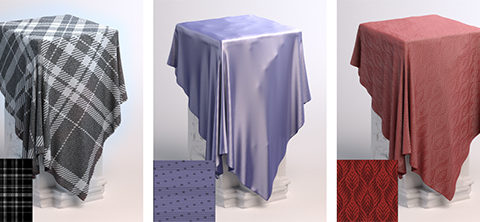
Practical Offline Rendering of Woven Cloth
Abstract
The techniques for rendering woven cloth employed in a production environment often neglect many of the structural features of the fabric, as well as light-scattering processes that occur in the yarn. Research in this area has progressed, and new promising methods have recently been proposed; however, many of these are not applied in practice due to their inherent complexities. In this paper, we develop and implement a shader for woven cloth that fulfills some of the needs of a production environment using an existing model for simulating the interaction with light. The shader delivers highly realistic results that are comparable, and in some cases superior, to current methods used in a real production environment. We enriched and validated the proposed framework by using direct feedback from a large company that produces images of furniture using computer graphics. The results demonstrate that our shader accurately simulates the appearance of certain types of woven cloth, showing reflections that are not present in other methods in current use. Our shader is easy to integrate in existing pipelines, flexible because it provides the artist with enough parameters to recreate many different types of fabric, and generic for the domain of woven cloth because it is able to accept as input widely used WIF files, which describe weave patterns as well as yarn specific parameters.